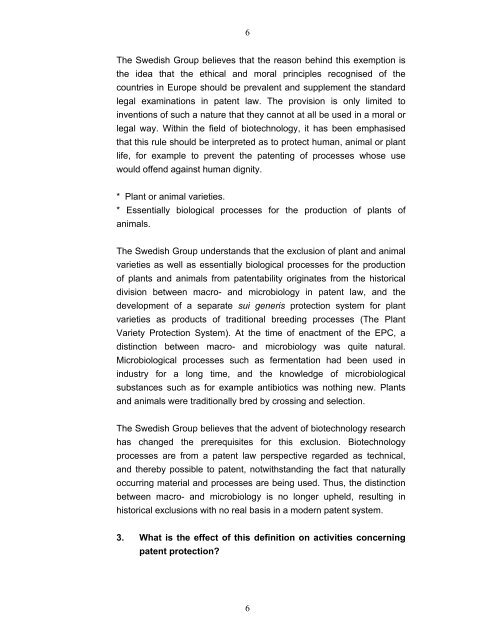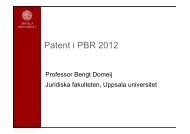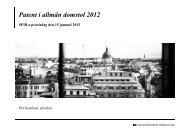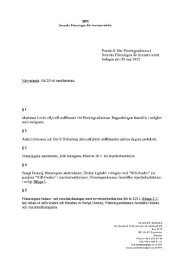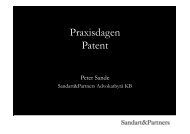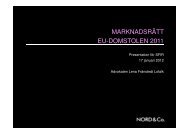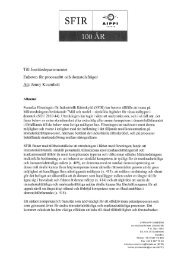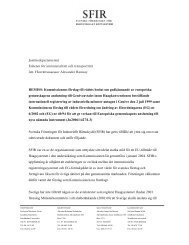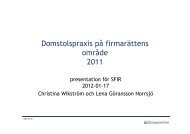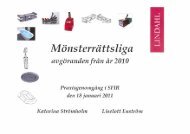Q178 draft report.pdf - SFIR
Q178 draft report.pdf - SFIR
Q178 draft report.pdf - SFIR
Create successful ePaper yourself
Turn your PDF publications into a flip-book with our unique Google optimized e-Paper software.
6<br />
The Swedish Group believes that the reason behind this exemption is<br />
the idea that the ethical and moral principles recognised of the<br />
countries in Europe should be prevalent and supplement the standard<br />
legal examinations in patent law. The provision is only limited to<br />
inventions of such a nature that they cannot at all be used in a moral or<br />
legal way. Within the field of biotechnology, it has been emphasised<br />
that this rule should be interpreted as to protect human, animal or plant<br />
life, for example to prevent the patenting of processes whose use<br />
would offend against human dignity.<br />
* Plant or animal varieties.<br />
* Essentially biological processes for the production of plants of<br />
animals.<br />
The Swedish Group understands that the exclusion of plant and animal<br />
varieties as well as essentially biological processes for the production<br />
of plants and animals from patentability originates from the historical<br />
division between macro- and microbiology in patent law, and the<br />
development of a separate sui generis protection system for plant<br />
varieties as products of traditional breeding processes (The Plant<br />
Variety Protection System). At the time of enactment of the EPC, a<br />
distinction between macro- and microbiology was quite natural.<br />
Microbiological processes such as fermentation had been used in<br />
industry for a long time, and the knowledge of microbiological<br />
substances such as for example antibiotics was nothing new. Plants<br />
and animals were traditionally bred by crossing and selection.<br />
The Swedish Group believes that the advent of biotechnology research<br />
has changed the prerequisites for this exclusion. Biotechnology<br />
processes are from a patent law perspective regarded as technical,<br />
and thereby possible to patent, notwithstanding the fact that naturally<br />
occurring material and processes are being used. Thus, the distinction<br />
between macro- and microbiology is no longer upheld, resulting in<br />
historical exclusions with no real basis in a modern patent system.<br />
3. What is the effect of this definition on activities concerning<br />
patent protection?<br />
6


